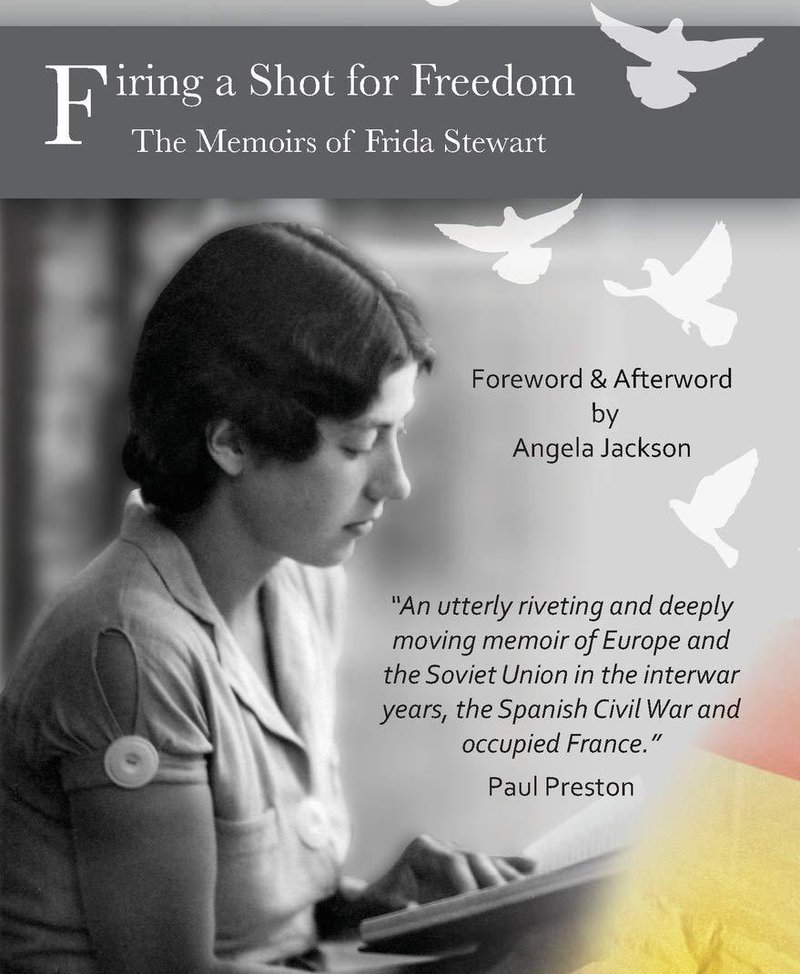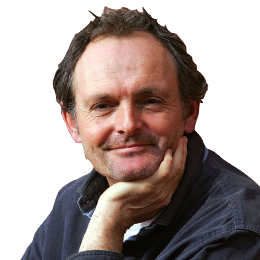HEADING FOR THE HILLS
Frida
Thank you Frida.
Your self-effacing, sweeping memoir of living on a continent sliding towards disaster offers an engaging and at the same time shuddering perspective on the human condition and the ever-present shadow of conflict.
The road to horror through the diseases of populism, poverty, ignorance, complicity and dire diplomacy are witnessed on one young woman’s extraordinary journey, fundamentally in the spinning whirlpool of the 1930s and the dire consequences. For some the drums of war were deafening, but many could not hear, or chose not to.
Spain’s tragedy is there, heart and centre. But this is also the European tragedy and is an all-the-more compelling account because it is married to the determination and adventures of one person. What to do with the privilege of an education, contacts and experiences that fire a deep social conscience? How do you counter the gravity of inevitability when it takes hold? You do all you can for others and fight injustice. You never stop trying.
She threw herself into the challenge, into dark corners and into harm’s way, to the front line, and had the great sense to write what she saw and felt. Such windows into our past have immeasurable worth.
To touch on all that Frida saw and risked would rob the book of its astonishing depth and surprises. But the distances she covers across Britain and Europe are extraordinary, as are the people she encounters, the details she records of life on the fringes of chaos and the unfathomable resolve. We all need to know, or be reminded of, the Spanish war orphans, the sickening farce of non-intervention, the concentration camps on the beaches: Also, with the emboldening of the fascists that Franco’s victory brought, the further flooding of France with refugees from Germany, Italy, Austria, Czechoslovakia, and the truth of how quickly the world can change. History is often so dangerously simplified when it could not be more chaotic. Frida, ever curious and determined, was someone who lived it.
Invaluable, too, to read of defiance and fortitude. As she helped 2,000 Spanish war refugees escape from the horror to start a new life in Mexico….. “Several crowded trains carried the emigrants from Barcarès and Perpignan to Sète, and it was the most stimulating journey I ever made, packed in with the women and children, cheering and shouting and singing. They filed on board and everyone fore-gathered on deck, where speeches were made and the loud-speaker blared out the national anthems of Britain and Repub-lican Spain. We all stood to attention, and I don’t think there was one of us who had not got a very large lump in their throats.”
This is, ultimately, for me, a book of hope - witness to our power to do good more than the power to dominate. This, in tandem with the chronic need for us to learn from the past, makes it very much a book for now, and it sheds a vital light on innocent people caught up in poverty and chaos and who are so easily forgotten.
And it is tenacious historian Dr Angela Jackson at her best too, researching in great detail and persisting in keeping the stories alive. Her books on Catalan and Spanish civil war history and the fellowship amid the dystopia are a vital record. Here is another one.
Read Frida.
FIRING A SHOT FOR FREEDOM is available from The Clapton Press (https://theclaptonpress.com/) and through Amazon from early July.


